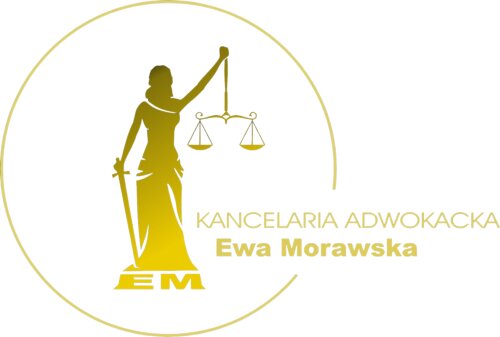Best Collaborative Law Lawyers in Poland
Share your needs with us, get contacted by law firms.
Free. Takes 2 min.
Free Guide to Hiring a Family Lawyer
Or refine your search by selecting a city:
List of the best lawyers in Poland
About Collaborative Law in Poland
Collaborative Law in Poland is an alternative dispute resolution process that emphasizes cooperative problem-solving over adversarial litigation. It is commonly used in family law cases, such as divorce and child custody, but it can also be applied to other legal disputes. This method involves both parties working with specially trained lawyers to reach a settlement that meets the needs of both parties, without the need for court intervention. The collaborative process is structured to reduce conflict, prioritize confidentiality, and find a settlement solution that is mutually satisfactory.
Why You May Need a Lawyer
There are several situations where seeking legal help through Collaborative Law may be beneficial. Some common examples include:
- Divorce or Separation: Couples looking to end their marriage amicably can use Collaborative Law to negotiate division of assets, child custody, and support.
- Family Disputes: Siblings or other family members might require assistance in resolving inheritances or family business succession plans.
- Business Conflicts: Partners or shareholders might wish to resolve disagreements out of court to maintain business relationships.
- Property Disputes: Neighbors or co-owners can negotiate property boundaries or usage rights without court battles.
In these situations, a lawyer trained in the collaborative process can facilitate constructive dialogue while protecting the client's rights and interests.
Local Laws Overview
The practice of Collaborative Law in Poland is governed primarily by principles rather than strict statutory regulations. These principles include voluntary participation, commitment to mutual respect, transparency in information sharing, and confidentiality. Lawyers engaged in this practice must also uphold ethical standards and maintain a collaborative posture rather than adversarial. Collaborative Law is recognized by the Polish court system as a valid method of dispute resolution, and courts typically support agreements reached through this process.
Frequently Asked Questions
What is the role of a lawyer in Collaborative Law?
The lawyer acts as a legal advisor and advocate for their client but collaborates with the opposing party and their lawyer to reach a mutual agreement.
How is Collaborative Law different from traditional litigation?
Unlike litigation, Collaborative Law focuses on negotiation and consensus without going to court, aiming for amicable resolutions.
Is Collaborative Law legally binding in Poland?
Yes, agreements reached through Collaborative Law can be made legally binding if formalized and approved by the court.
What happens if a collaborative process fails?
If the process fails, parties must seek new legal representation, as existing collaborative lawyers cannot represent them in court.
Can Collaborative Law be used in non-family law cases?
Yes, it can be applied to business disputes, property issues, and more, wherever mutual resolution is preferred.
How can confidentiality be ensured in Collaborative Law?
Confidentiality agreements are typically signed, and private discussions are held to ensure all matters remain private.
What costs are involved in Collaborative Law?
Costs vary but typically include lawyer fees and possibly fees for neutral experts. It can be less expensive than traditional litigation.
Do both parties need to agree to use Collaborative Law?
Yes, both parties must agree to participate in the collaborative process willingly.
How long does the collaborative process take?
The duration varies, depending on the complexity of the issues, but it is generally quicker than court litigation.
What qualities should I look for in a collaborative lawyer?
Look for lawyers with experience in Collaborative Law, training in alternative dispute resolution, and a commitment to cooperative negotiation.
Additional Resources
For further assistance with Collaborative Law in Poland, consider the following resources:
- Polish Bar Association: Offers information about lawyers trained in Collaborative Law.
- Family Law Foundation: Provides resources for families exploring collaborative options.
- Local Mediation Centers: May have collaborative law experts and professionals who can assist.
Next Steps
If you require legal assistance in the realm of Collaborative Law in Poland, consider these steps:
- Research and contact a lawyer specialized in Collaborative Law. An initial consultation can help you determine if this approach is right for your situation.
- Prepare all relevant documents and information needed for your case. Transparency and cooperation are key aspects of the collaborative process.
- Discuss your goals and concerns openly with your lawyer to ensure the resolution process aligns with your needs.
- Consider attending information sessions or workshops on Collaborative Law to better understand the process and expectations.
Being informed and proactive will aid in the successful resolution of your legal matter through Collaborative Law.
Lawzana helps you find the best lawyers and law firms in Poland through a curated and pre-screened list of qualified legal professionals. Our platform offers rankings and detailed profiles of attorneys and law firms, allowing you to compare based on practice areas, including Collaborative Law, experience, and client feedback.
Each profile includes a description of the firm's areas of practice, client reviews, team members and partners, year of establishment, spoken languages, office locations, contact information, social media presence, and any published articles or resources. Most firms on our platform speak English and are experienced in both local and international legal matters.
Get a quote from top-rated law firms in Poland — quickly, securely, and without unnecessary hassle.
Disclaimer:
The information provided on this page is for general informational purposes only and does not constitute legal advice. While we strive to ensure the accuracy and relevance of the content, legal information may change over time, and interpretations of the law can vary. You should always consult with a qualified legal professional for advice specific to your situation.
We disclaim all liability for actions taken or not taken based on the content of this page. If you believe any information is incorrect or outdated, please contact us, and we will review and update it where appropriate.
Browse collaborative law law firms by city in Poland
Refine your search by selecting a city.












